Gas vs Electric Water Heater: Ultimate Comparison
Deciding between a gas or electric water heater requires a clear understanding of their key differences. This article offers an in-depth analysis of the pros and cons associated with both options, focusing on factors like energy efficiency and upfront costs. By considering these aspects, homeowners can make informed choices that suit their specific needs and preferences.

How do electric water heaters work?
In an electric water heater, the operation involves submerged heating elements inside a storage tank. These elements are powered by your home's electrical system. The unit's thermostat constantly monitors the water temperature and shuts off the heating elements when the desired temperature is attained. This efficient mechanism ensures a steady supply of hot water readily available for your daily needs.

Benefits of electric water heaters
Electric water heaters offer several benefits over gas:
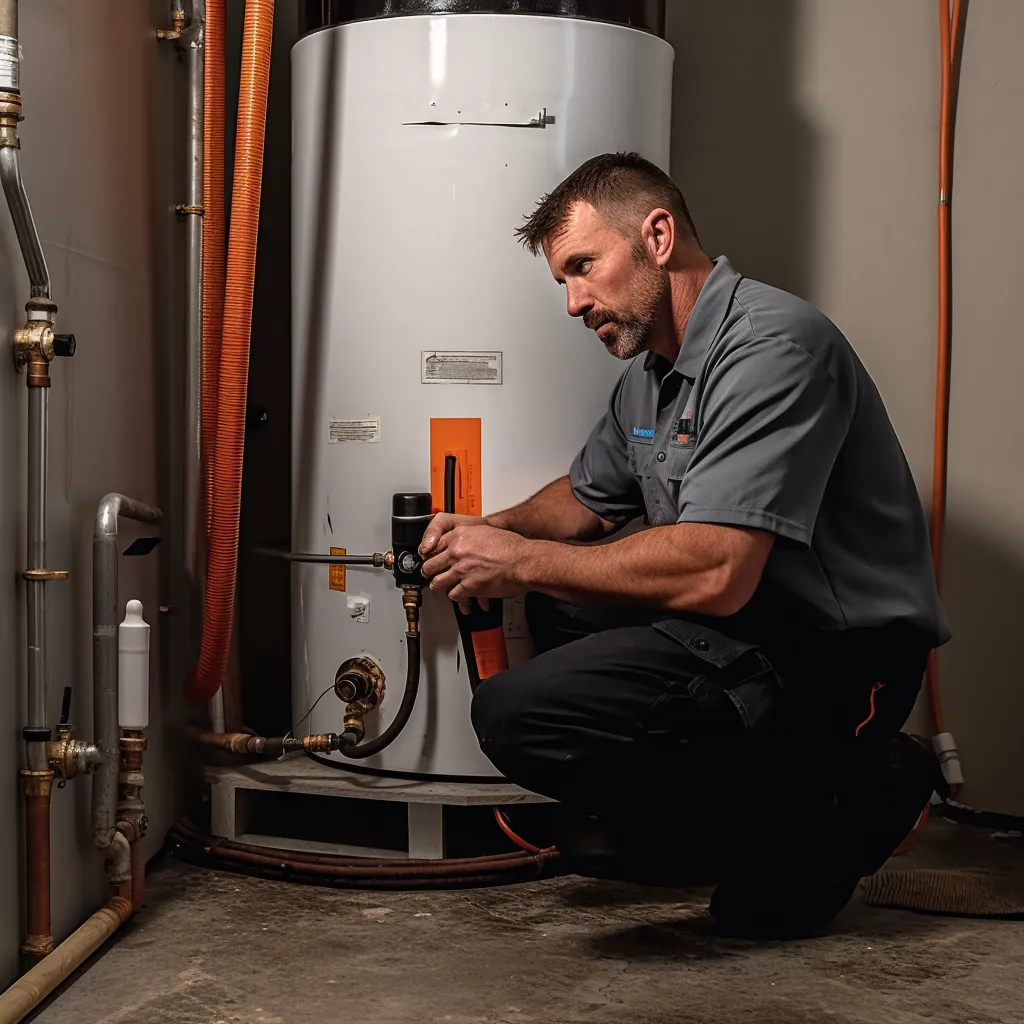
Safer Indoor Use: Electric water heaters do not produce combustion byproducts or open flames, making them safer for indoor installation.
Lower Upfront Cost: Electric water heaters generally have a lower initial cost compared to gas-powered models.
No Venting Requirements: Since there are no combustion byproducts, electric water heaters do not require venting, simplifying installation.
Energy Efficiency: Electric water heaters have improved energy efficiency, especially with advancements in technology and insulation.
Easier Installation: Electric water heaters are easier to install and may not require additional gas line connections.
Disadvantages of electric water heaters
While electric water heaters offer several benefits, they also have some disadvantages that should be taken into account:
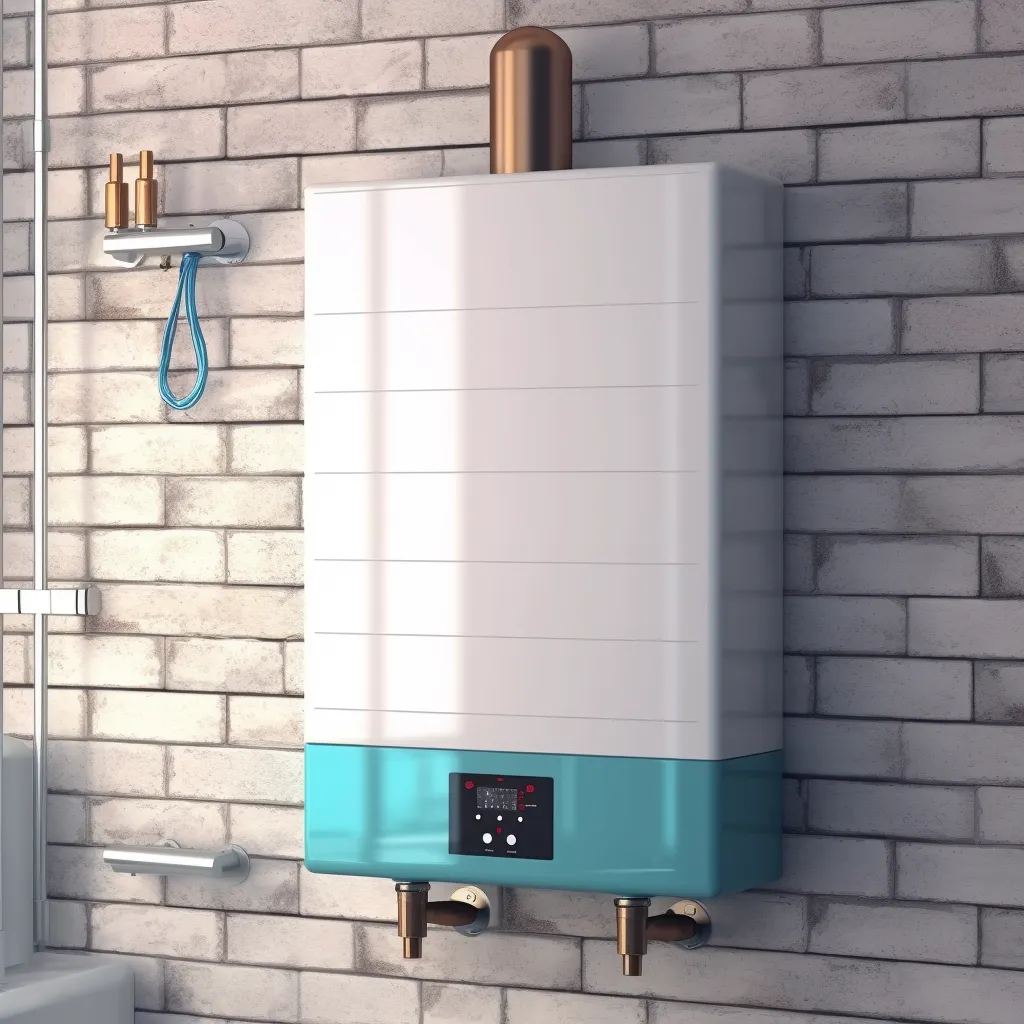
Higher Operating Costs: Electric water heaters generally have higher operating costs compared to gas-powered models. Electricity rates can be more expensive, leading to higher utility bills.
Slower Heating: Electric water heaters may have a slower recovery rate, taking longer to heat and replenish hot water compared to gas models.
Potential Power Outage Issues: During power outages, electric water heaters may not provide hot water, leaving you without a reliable source of hot water until the power is restored.
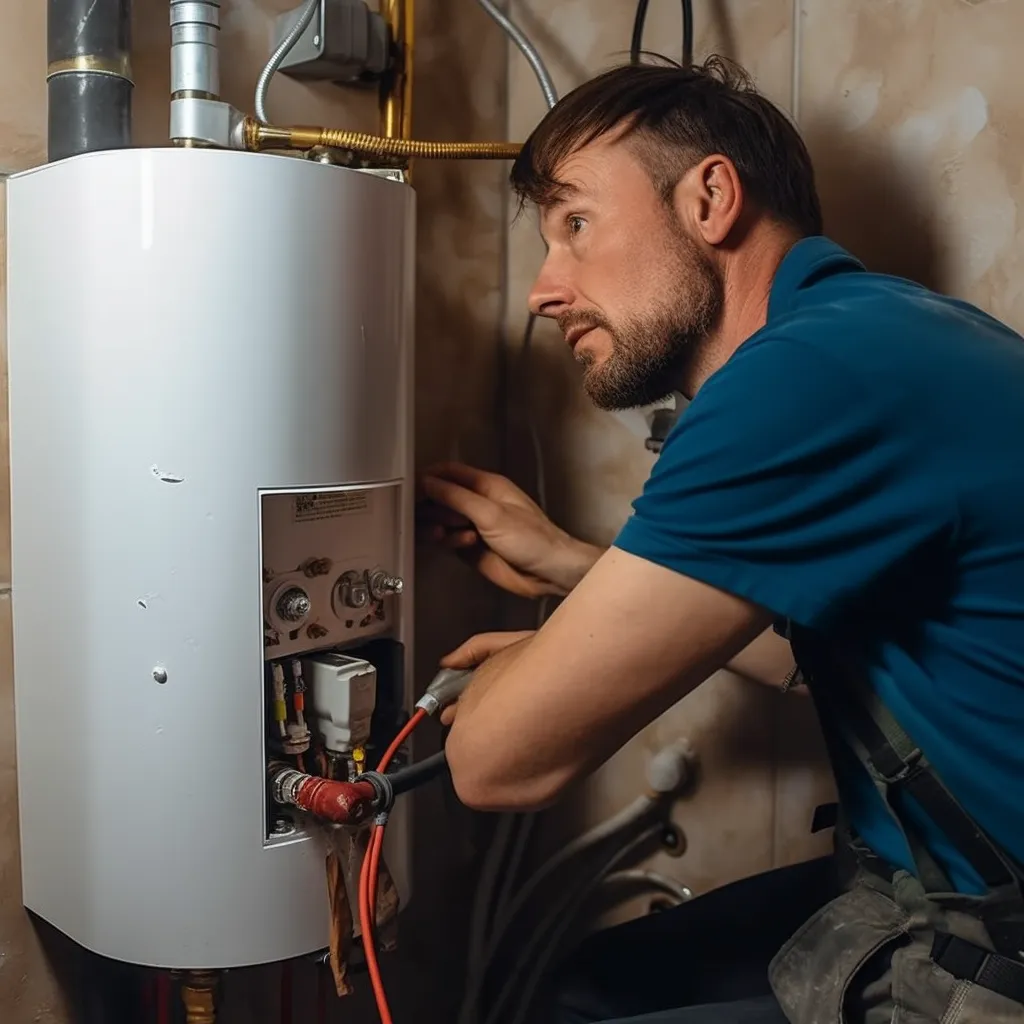
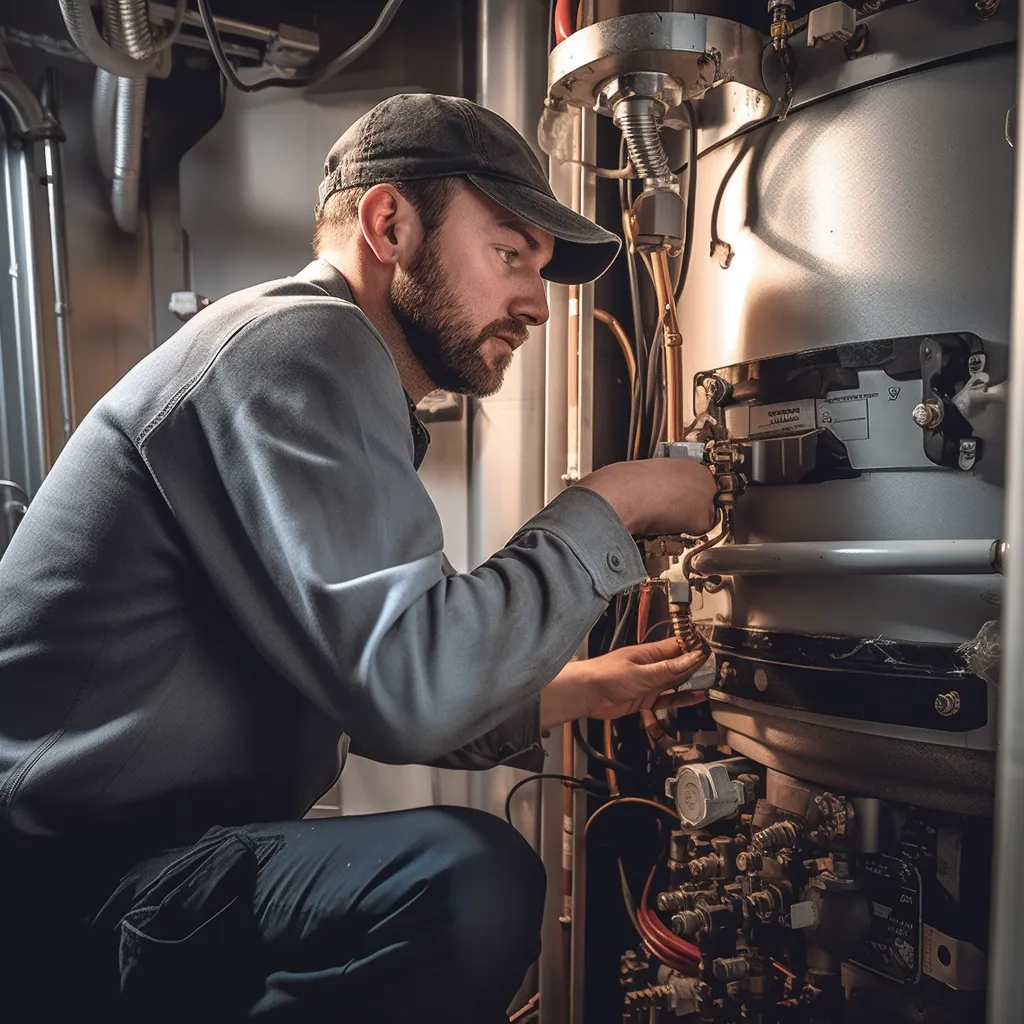
How do gas water heaters work?
In gas water heaters, operation begins with igniting a gas burner positioned at the bottom of a sizable tank. The burner's heat warms the water contained within the tank, making it readily accessible through taps as needed. As hot water is utilized, the tank is replenished with cold water, ensuring an uninterrupted flow of hot water for various household requirements. This continuous heating and replenishment cycle guarantees a steady and reliable supply of hot water at all times.
Pros of gas water heaters
Gas water heaters are a popular choice for many reasons:

Faster Heating: Gas water heaters heat water more quickly than electric models, providing hot water faster.
Lower Operating Costs: Natural gas is often less expensive than electricity, resulting in lower monthly utility bills for gas water heaters.
Continuous Operation during Power Outages: Gas water heaters can still function during power outages, ensuring a constant supply of hot water.
Suitable for High-Demand Households: Gas water heaters have a higher recovery rate, making them suitable for larger households with higher hot water demands.
Longevity: Gas water heaters typically have a longer lifespan compared to electric models, providing reliable service for many years.
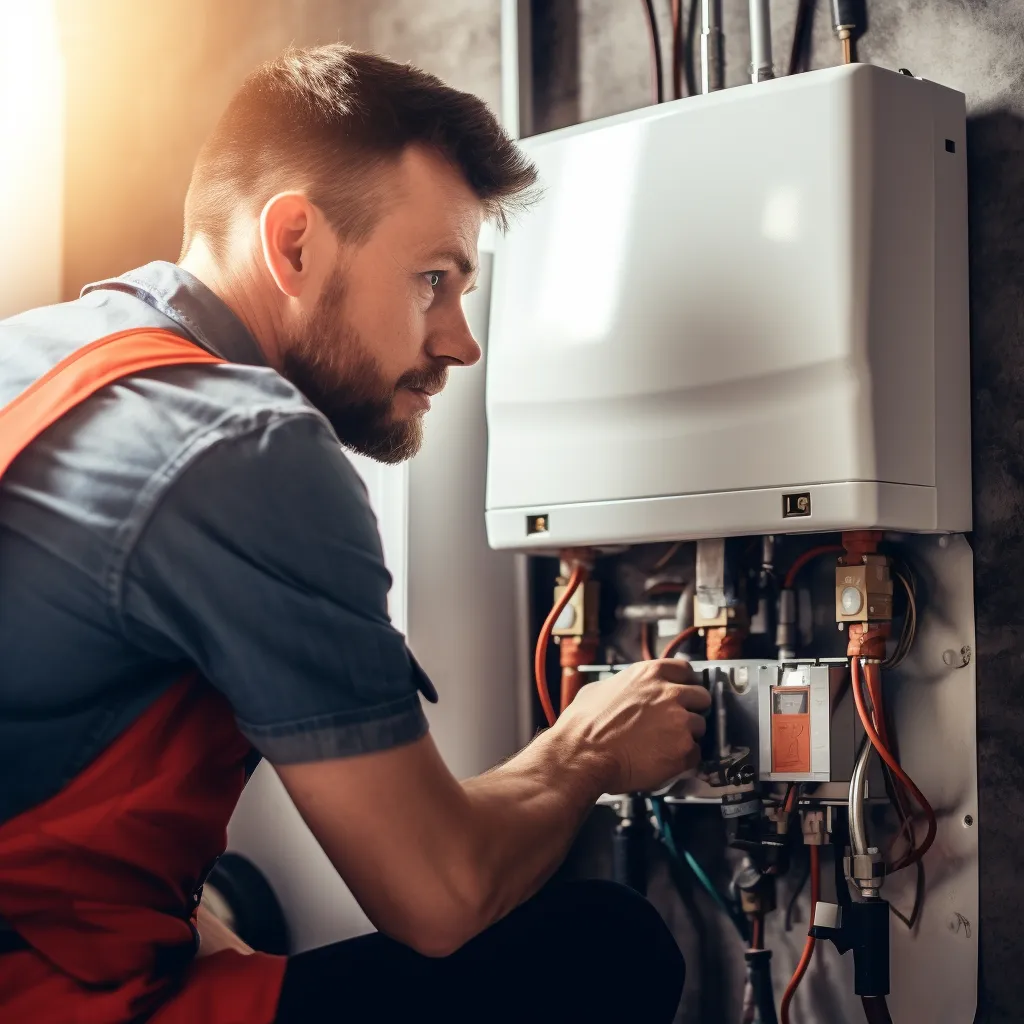
Cons of gas water heaters
While gas water heaters offer numerous advantages, they also have some disadvantages that should be taken into consideration:
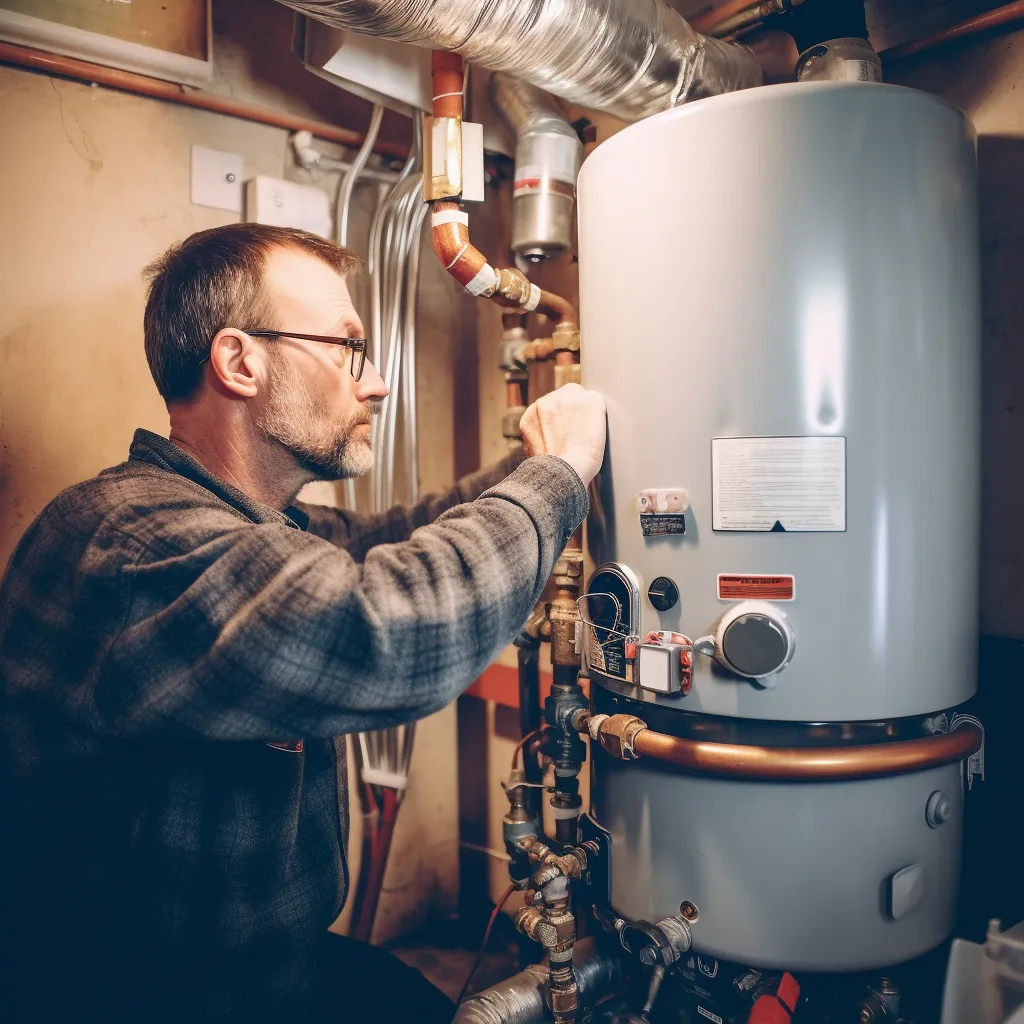
Higher Upfront Cost: Gas water heaters generally have a higher initial cost compared to electric models, including the cost of the unit and potential additional venting requirements.
Venting Requirements: Gas water heaters produce combustion byproducts that must be vented properly. Venting systems can be complex and add to installation costs.
Limited Placement Options: Gas water heaters must be installed in well-ventilated areas, which may limit placement options within the home.
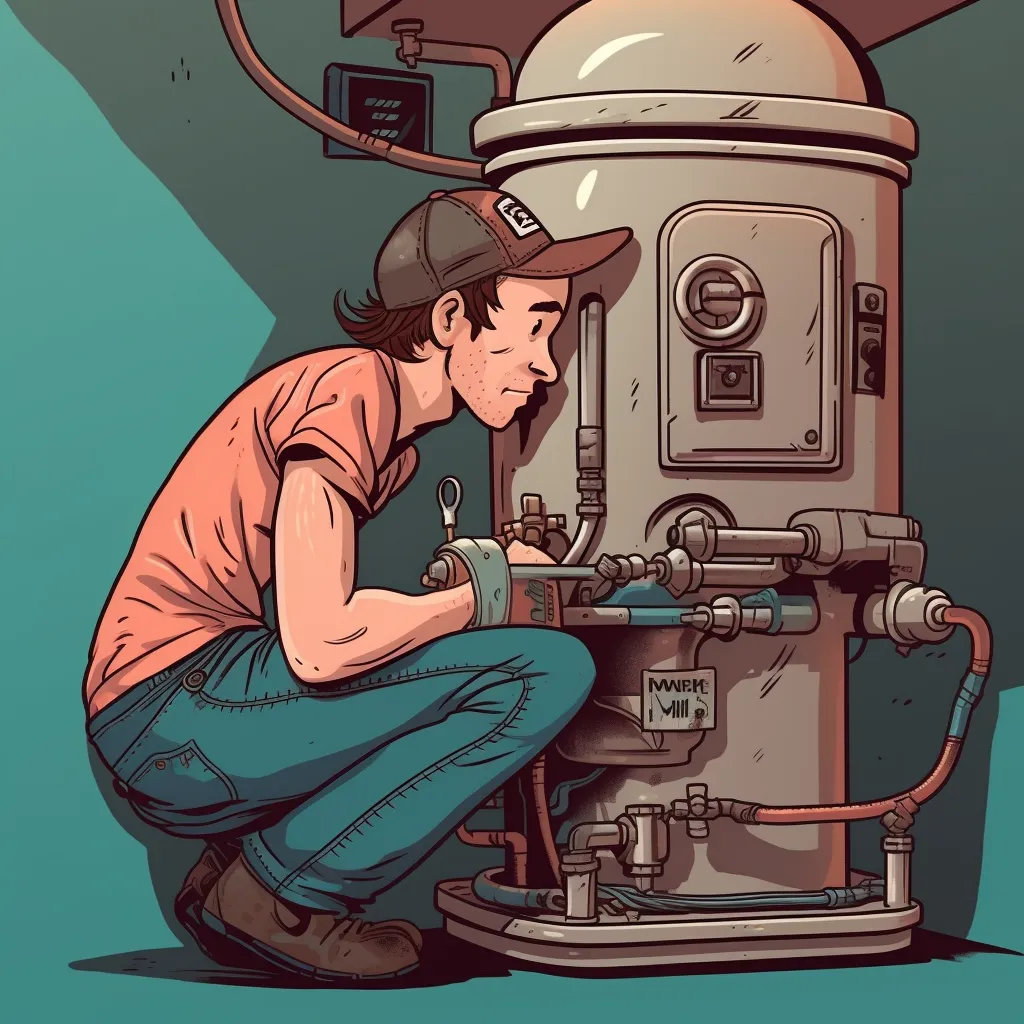
Are electric water heaters energy-efficient?
Electric water heaters can indeed be energy-efficient, but their efficiency depends on factors such as the unit's design, insulation, and usage patterns. Look for models with high energy efficiency ratings, like Energy Factor (EF) or Uniform Energy Factor (UEF) values. Well-insulated tanks help reduce standby heat loss, and proper thermostat settings contribute to energy conservation. Regular maintenance, such as flushing the tank and checking heating elements, ensures optimal efficiency. By being mindful of hot water usage and adopting energy-saving practices, homeowners can improve the overall energy efficiency of electric water heaters and lower utility costs.
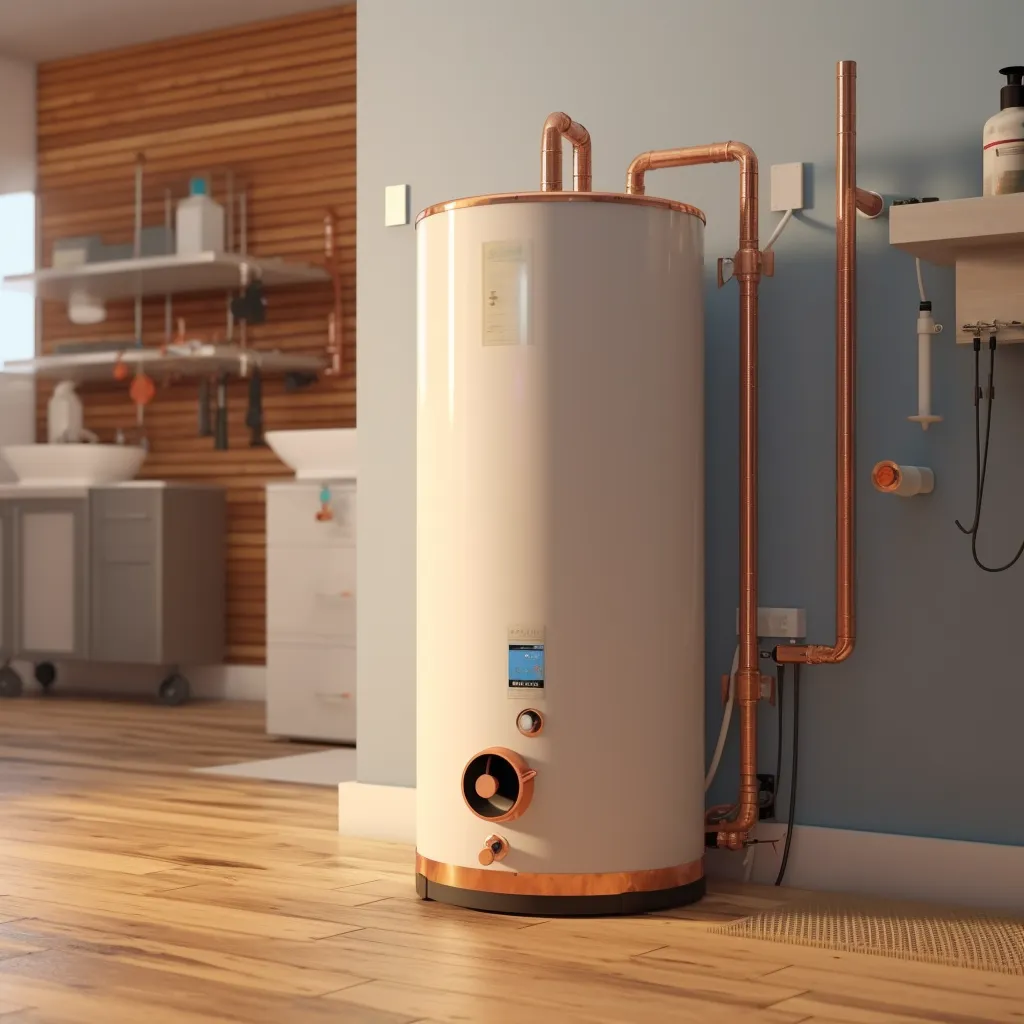
Are gas water heaters energy-efficient?
Gas water heaters can be energy-efficient, but this efficiency depends on factors like design, technology, and usage patterns. High-efficiency models and condensing technology contribute to better performance. Well-insulated tanks reduce standby heat loss, while proper sizing and regular maintenance further optimize efficiency. Faster recovery rates make gas water heaters suitable for meeting hot water demands efficiently. Choosing a gas water heater with safety features ensures safe and efficient operation. Overall, selecting a high-efficiency model and practicing energy-saving habits can maximize the energy efficiency of gas water heaters and reduce utility costs.
What does it cost to buy and install electric water heaters?
Electric water heaters indeed come in various sizes and configurations, leading to varying costs. On average, a 50-gallon electric water heater may cost between $300 to $800. The installation of an electric water heater usually incurs an additional expense of around $300 to $500, which can fluctuate based on the extent of the work required and any necessary permits. It's essential to consider both the unit's cost and installation expenses when budgeting for an electric water heater replacement or installation.

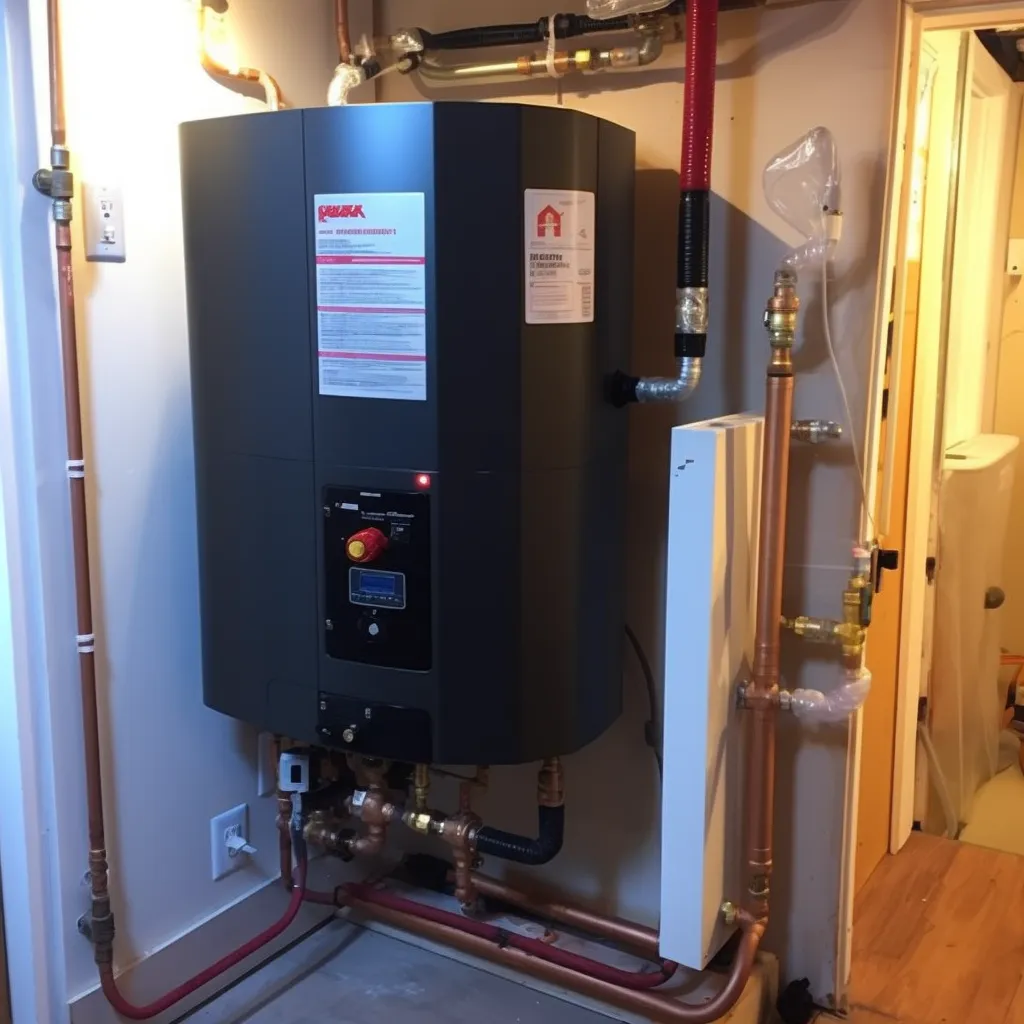
What does it cost to buy and install gas water heaters?
Gas water heaters indeed come in various sizes, with prices ranging from $500 to $1,500, and high-end models reaching up to $3,000. Installation charges should also be considered, as they can vary depending on location and plumbing requirements.
While the initial cost of a gas water heater may seem higher, it's essential to consider the long-term benefits and savings. Gas water heaters offer better energy efficiency, leading to lower utility bills over time. Additionally, their ability to provide a consistent and uninterrupted supply of hot water is particularly advantageous for households with high hot water usage. Overall, the investment in a gas water heater can result in significant cost savings and improved performance in the long run.

Maintenance needs of electric water heaters
Proper maintenance is essential to ensure the reliable and safe operation of electric water heaters. Regular checks of the temperature and pressure relief valve are necessary to prevent overheating and potential hazards. Flushing the tank every six months to a year helps remove sediment buildup, ensuring efficient performance. Inspecting the heating elements for damage or mineral buildup and replacing them as needed is crucial. Additionally, maintaining secure and undamaged electrical connections is vital for safe functioning. If you are unsure about performing maintenance tasks, it's best to seek the assistance of a licensed professional for peace of mind and proper upkeep.
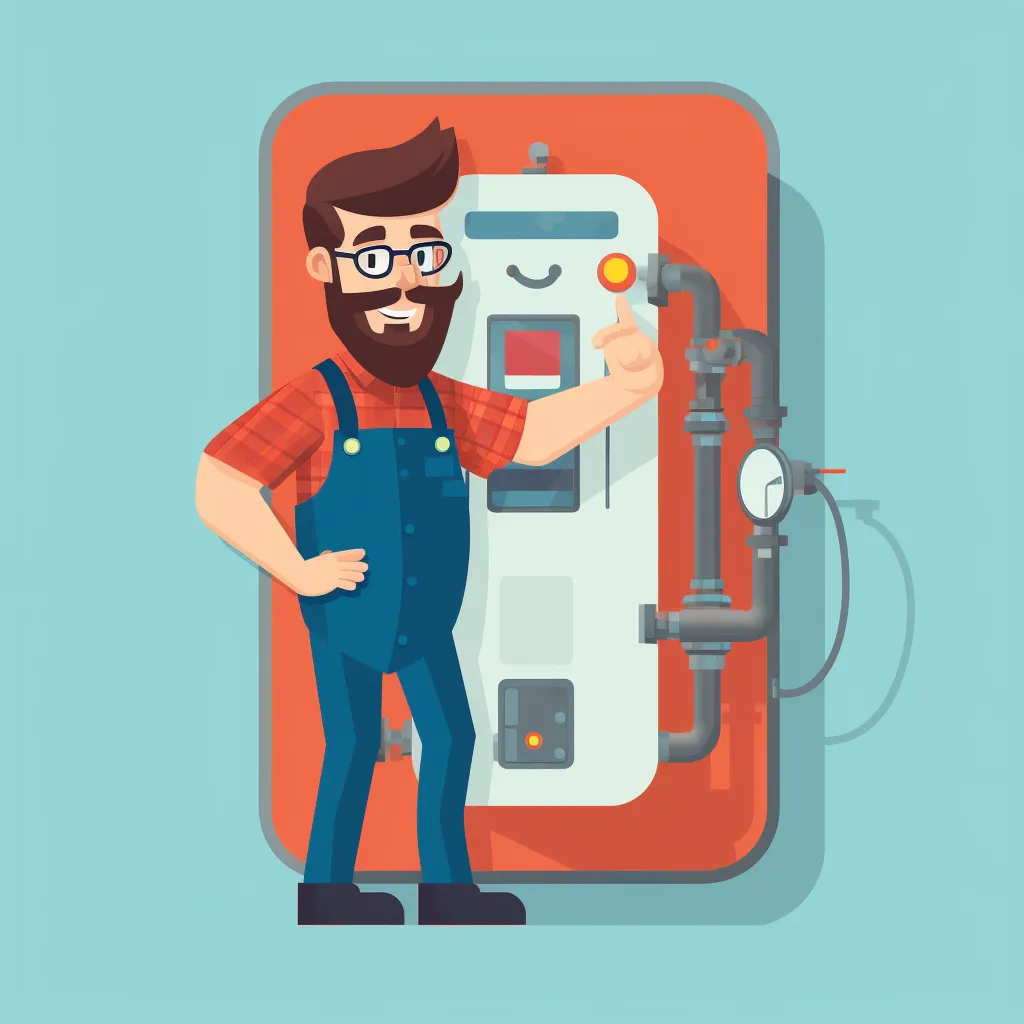
Maintenance needs of gas water heaters
Regular maintenance is crucial to ensure the effective and safe operation of gas water heaters. Tasks like annual tank flushing, periodic inspection of the anode rod, and monitoring the burner and pilot assembly for debris or damage are essential. Additionally, testing the temperature and pressure relief valve annually and checking for gas leaks are important for safety. By diligently performing these maintenance tasks, you can ensure your gas water heater operates efficiently and safely. If you have any uncertainties or concerns, it's best to consult a licensed professional for expert guidance and assistance.
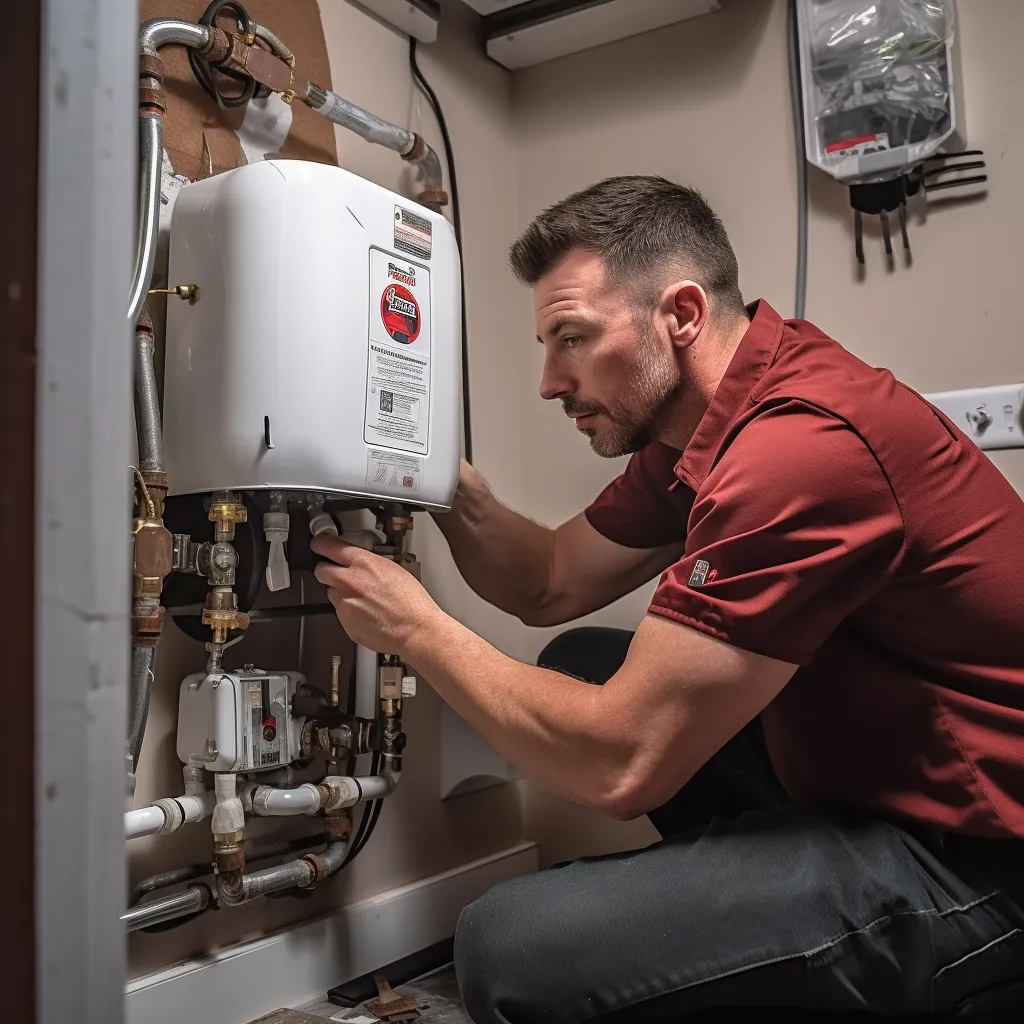

Safety considerations of electric water heaters
When using an electric water heater, prioritizing safety is crucial to prevent potential hazards. One significant concern is the risk of electrocution, which can occur if the heater is not properly grounded or experiences a malfunction. Additionally, fire hazards may arise if the heater overheats or is positioned near flammable materials.
To mitigate these risks, it is essential to strictly follow the manufacturer's instructions and have a licensed professional install the water heater. By taking these precautions, you can ensure a safe and reliable operation of your electric water heater, providing you with peace of mind and a comfortable living environment.
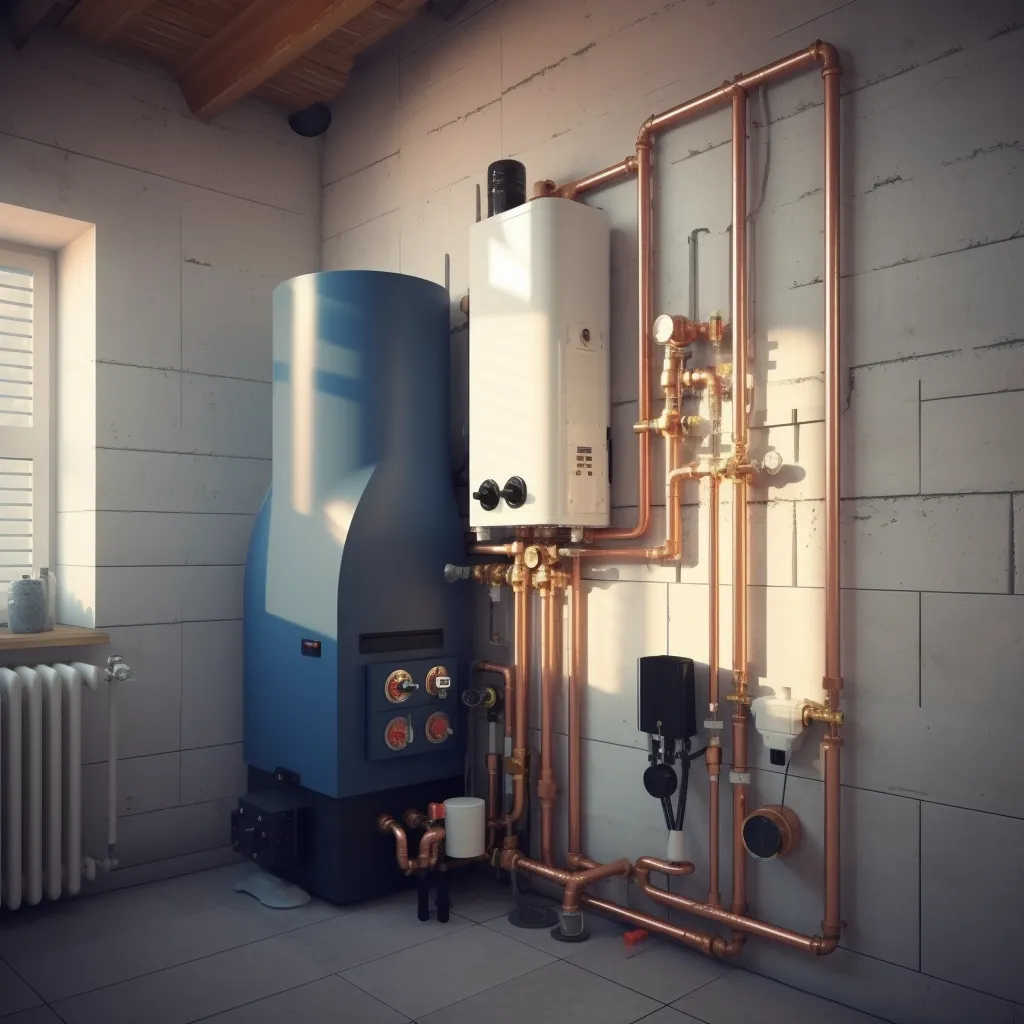
Safety considerations of gas water heaters
Ensuring safety when using gas water heaters is essential. Install a carbon monoxide detector nearby and schedule regular inspections and maintenance by a licensed professional. Keep the surrounding area free from flammable materials and be alert to signs of gas leaks. These precautions promote a secure environment for your home and the reliable operation of your gas water heater.

How to choose between electric vs gas water heater
To choose the right water heater, consider the following factors:
Home size and hot water usage: Determine the appropriate capacity based on the size of your household and the frequency of hot water usage.
Cost: Compare the initial purchase and installation costs of electric and gas water heaters. Gas heaters may offer long-term cost savings, while electric heaters have lower upfront expenses.
Efficiency: Gas water heaters are generally more energy-efficient and cost-effective to operate compared to electric models.
Maintenance: Electric water heaters require less maintenance, while gas heaters need regular inspections to ensure safety and prevent malfunctions.
Environmental impact: Electric water heaters produce fewer emissions and have a lower carbon footprint compared to gas water heaters.
The decision to choose a water heater should be based on various factors that align with your preferences and needs. Take into account energy efficiency, installation costs, maintenance requirements, and available fuel sources in your area. Also, consider your hot water consumption, long-term cost savings, and environmental concerns. By carefully evaluating these aspects, you can select a water heater that meets your priorities and provides a dependable hot water supply for your home.
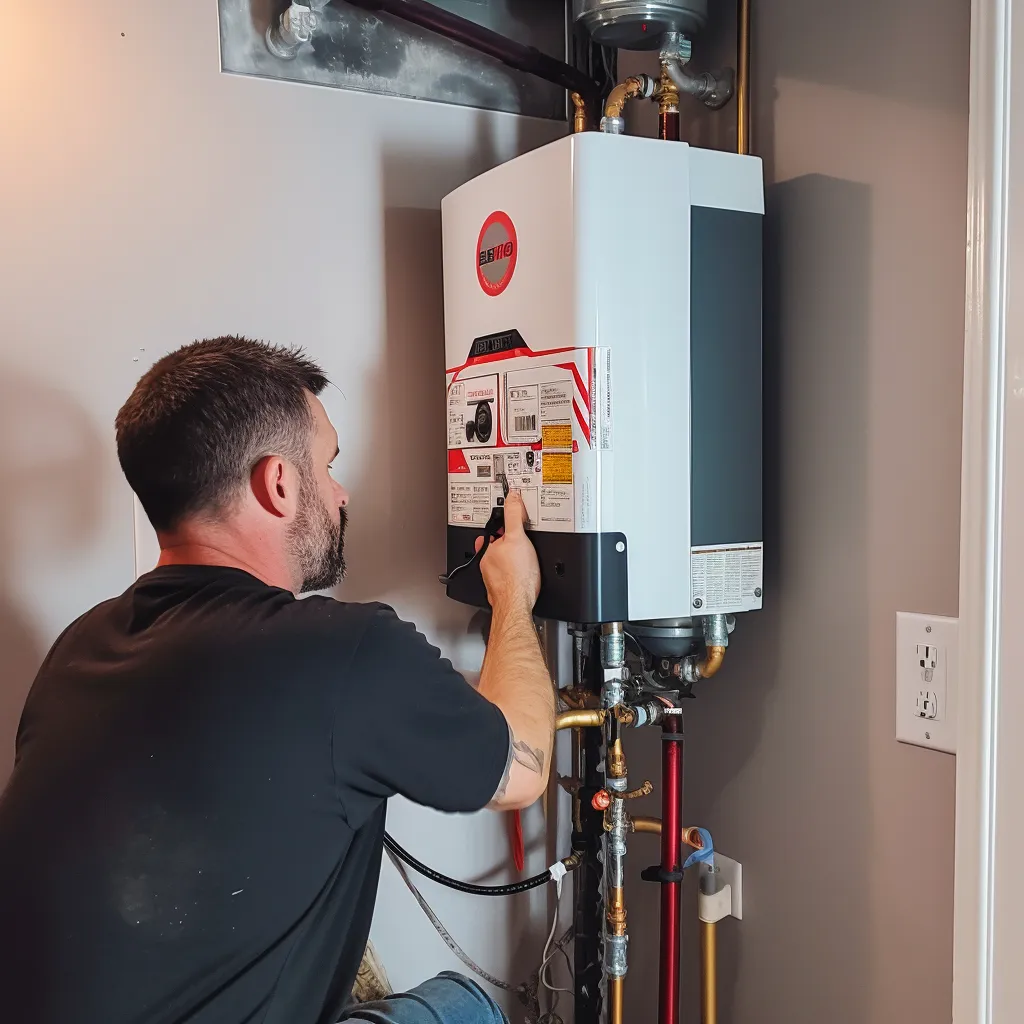
Why you should hire a licensed professional
to install your water heater
Installing or replacing a water heater is a considerable undertaking that requires careful consideration. While some may consider a DIY approach to save costs, it can be hazardous. Hiring a licensed and experienced professional is highly recommended. They possess the necessary expertise to ensure a safe and accurate installation. Entrusting the task to a professional guarantees adherence to safety protocols and addresses any potential issues. Prioritizing your safety is paramount, and relying on a licensed professional is the prudent and responsible decision.


Be sure to do your research
When selecting a water heater, comprehensive research is vital. Electric and gas models come with their respective advantages and disadvantages. Consider safety factors and installation requirements as well. By thoughtful planning and evaluating these factors, you can find the perfect water heater for your requirements. However, it is crucial to highlight the importance of engaging a licensed professional for proper installation. Their expertise ensures the safe and efficient operation of your water heater.
Contact Us
GET IN FULL TOUCH
PHONE: (209) 370-0794
EMAIL:
orlando@waterheatermodesto.com
Westside Plumbing
Modesto, CA 95354
